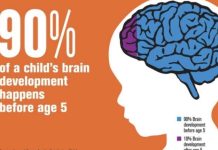Africa-Press – Namibia. With about 773 463 persons receiving social grants, the Ministry of Gender Equality, Poverty Eradication and Social Welfare has an allocated a budget of N$5,4 billion with which to fund social safety net programmes.
From the total budget, 94% is meant for social grants, which translates to about N$5 billion. The Ministry also pays grants to 191 865 pensioners, 47 368 people living with disabilities, 339 735 vulnerable children and 194 495 parents nationwide.
On Monday the Ministry delegated its social welfare functions to Regional Councils, including the payment of old-age grants, the disability grant and funeral benefits.
Th decentralisation of grant services will make funds more accessible for citizens. The process kicked off in 2018 and was partially completed in 2019 but had to be delayed as a result of the Covid-19 outbreak.
According to the latest statistics, Namibia’s population stands at 2,5 million, of which at least 43,3% of the population are multi-dimensionally poor, which means they experience multiple deprivations on a daily basis. On average, 44% of the population experience a certain level of weighted deprivations.
Pensioners and persons with disabilities currently receive N$1 300 monthly, while each vulnerable child receives N$250 on a monthly basis. The Government also pays N$4 800 in funeral benefits to the families of beneficiaries when they die.
Despite the Government making these funds available, citizens still face challenges such as digitalisation and how communities treat those receiving grants, particularly the elderly and those living with disabilities. Pensioners themselves also sometimes add to the problem by spending their grant funds on alcohol or gambling.
Gender Minister Doreen Sioka, in a speech read by Deputy Minister Bernadette Jagger, said their records show that over 50% of households constitute extended families, while about 10% of households have non-relatives as household members.
“It is estimated that almost a fifth of all families depend on social pensions as the sole source of income,” she said.






